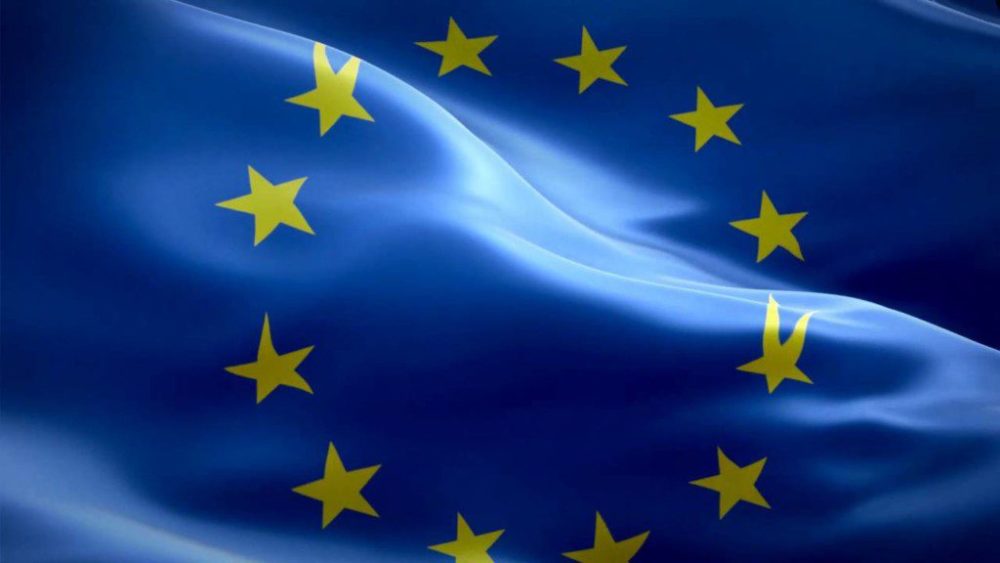GEN – 1435.00. In cooperation with Orgalim, the Eurovent Team provides you with an overview on all European legislative developments of relevance to the HVACR sector. The Bulletin provides a compendium allowing the industry to assess the status quo.
Highlights
F-Gas
The legislative process on the proposal for a revision of the F-Gas Regulation is ongoing.
Both the European Parliament’s Environment Committee (ENVI) draft report and the Committee for Industrial Affairs (ITRE) draft opinion are available.
The rapporteur’s (Bas Eickout, Greens, NL) main proposals include :
- Phasing-out both HFC production and consumption by 2050.
- Accelerating the HFC consumption phase-down.
- Moving several (sub)sectors, such as refrigeration, air conditioning, heat pumps and switchgear, to F-Gas free alternatives.
- Strengthening the training and certification requirements for natural refrigerants.
- Including a maximum validity period for certificates of five years, after which new certification should be required.
- Taking further action on illegal trade by proposing minimum penalties for non-compliance, eliminating exemptions and thresholds for reporting, and increasing investments in customs and monitoring.
The rapporteur for opinion, Sara Skyttedal (EPP, Sweden) also proposes to extend EU training and certification requirements to all types of refrigerants, including non-fluorinated alternatives. In addition, the draft opinion includes amendments to ensure the availability of a full and diverse range of refrigerants for heating and cooling installations as well as a proposal to extend the ban date for 12 to 24 kV (12 kV excluded) voltage level switchgear from 2026 to 2028.
As regards next steps, a debate will take place in the ENVI Committee on 7 November and the deadline for amendments is 15 November. The ITRE Committee will discuss the draft opinion on 27 October, which is also the deadline to table amendments, followed by the vote currently scheduled for 5 December.
In the EU Council, three meetings of the Working Party on the Environment took place in September and October. It is likely that discussions will continue under the Swedish Presidency starting in January 2023.
Construction Products Regulation (CPR)
Regarding the latest updates since August for the Construction Products Regulation (CPR), an initiative which aims at laying down harmonised conditions for the marketing of construction products, it is worth mentioning that the feedback period which started on 17 June closed on 19 August.
On 29 September the Parliament Committee on the Environment, Public Health and Food Safety (EP ENVI), the Committee for opinion, issued an opinion report on this initiative.
On 10 October, the Parliament Committee on the Internal Market and Consumer Protection (EP IMCO), the Committee responsible for the file, organised a Public Hearing entitled “Making the Internal Market for Construction Products fit for the 21st century”. The Parliament also organised a Public Hearing on 12 October. Both events were an opportunity for stakeholders to shape the opinion of MEPs and in particular the EP IMCO rapporteur, Christian Doleschal (EPP, Germany), whose report is expected to be published on 8 November.
Cybersecurity
The European Commission’s proposal for a Cyber Resilience Act was published on 15 September.
The proposed Regulation lays down:
- Rules for the placing on the market of products with digital elements (whose intended and reasonably foreseeable use includes a direct or indirect logical or physical data connection to a device or network) to ensure the cybersecurity of such products
- Essential requirements for design, development and production of such products: manufacturers to factor in cybersecurity in the design and development and production of products with digital elements, exercise due diligence on security aspects, be transparent on cybersecurity aspects that need to be made known to customers, ensure security support (updates) in a proportionate way, and comply with vulnerability handling requirements
- Essential requirements for the vulnerability handling processes put in place by manufacturers to ensure the cybersecurity of such products during their whole life cycle, and obligations for economic operators
- Rules on market surveillance and enforcement
Further crucial points:
- The Regulation will not apply to certain products listed in the text, which include type-approval requirements for motor vehicles and their trailers, and systems, components and separate technical units intended for such vehicles
- Critical products with digital elements are divided into two classes (in an Annex III, which is not included in the leaked document), reflecting their cybersecurity risk level, with class II representing a greater risk. The intended use in sensitive environments, such as an industrial setting, is taken into account in determining the classification of the product
- The provisional text includes two Articles (Articles 7 and 8) which link this Regulation to conformity requirements established by the AI Act (for high-risk AI systems) and the Machinery Regulation
The ITRE Committee was appointed as responsible Committee in the Parliament, while IMCO and LIBE were appointed as Committees for opinion.
The Parliament and Council are currently in their preparatory work phase.
Machinery Directive (MD)
As a reminder, on 12 July the trilogue negotiations were initiated under the Czech Presidency of the Council. This first trilogue was more political and the details of the content were not discussed. Since September, the discussions on the future Machinery Products Regulation (MPR) have been in the form of technical discussions. The discussions more accurately involve blocks of topics on the basis of their 4-columns comparative table. The second High-Level trilogue previously scheduled for 11 October has been postponed and the new timing is not yet known. An agreement could be found by Christmas given the state of discussions and the strong will of the Czech Presidency to close the file. If this is the case, the publication in the Official Journal of the EU should take place one month later.
Regarding the substance of the text, it is important to note that there are still some points of disagreement such as the date of application of the Regulation, the number of machinery categories subject to third party conformity assessment in Annex I and the proposed digital format of instructions.
Apart from the decision-making process, also worth mentioning is the last Machinery Expert Group which took place on 10 and 11 October. This European Commission group, whose aim is to provide advice and expertise to the Commission in the preparation of legislative proposals and policy initiatives, gave a number of insights on the progress of the file. From this meeting it appears that there is strong support for making the development of the new MPR guide a priority. Another element that came out of this discussion was the confirmation by the Commission that existing harmonised standards that do not require to be modified because the essential health and safety requirements they cover have not been changed will continue to offer a presumption of conformity through the new MPR.
RoHS General Review
The public consultation on the RoHS review was open until 16 June 2022. The purpose was to collect information and views from stakeholders on how the RoHS Directive could be improved in order to maintain its relevance and increase its efficiency. The evaluation of the Directive flagged the following as potential areas for improvement:
- the exemption process
- the process of reviewing the list of restricted substances
- the alignment of RoHS with other EU legislative frameworks (e.g. the more horizontal Regulation on chemicals, REACH) and the European Green Deal objectives, and in particular the Circular Economy Action Plan (CEAP), the Chemicals Strategy for Sustainability, the Zero Pollution Action Plan, and the Sustainable Products Initiative.
The revision of RoHS was scheduled for Q4 2022, but it was postponed. The RoHS revision is likely to be published after the completion of the REACH revision to ensure consistency and coherence between RoHS and REACH. This also means that RoHS will not be integrated into REACH.
Ecodesign for Sustainable Products Regulation
Following the recent elections in Italy, Simona Bonafe (S&D, Italy) – the rapporteur of the European Parliament ENVI Committee, who was leading the Ecodesign for Sustainable Products Regulation (ESPR) proposal – will become a member of the Italian Parliament. In turn, her colleague Alessandra Moretti (S&D, Italy) has been appointed as the new rapporteur.
A similar substitution is also foreseen for the shadow rapporteur, Jessica Polfjärd (EPP, Sweden), who will become a member of the Swedish national parliament following their parliamentary elections. The name of her substitute has not yet been officially announced.
The change of rapporteur has also been followed by a new timeline for the Parliament Committee on the Environment, Public Health and Food Safety (ENVI), which has been changed as follows:
- Consideration of draft report – 12 January 2023
- Deadline for amendments – 17 January 2023
- Vote – 05 June 2023
As regards to the Council of the EU, the Competitiveness Council held a public discussion on the ESPR on 29 September, during which the Member States shared their individual main comments and positions.
The recording of the session is available here.
Finally, these are the next steps for the Council of the EU:
- Consideration of draft report – 12 January 2023
- Deadline for amendments – 17 January 2023
- Vote – 05 June 2023
GPP in the new Ecodesign for Sustainable Products Regulation
The proposal for a new Ecodesign for Sustainable Products Regulation (2022/0095), the ESPR, will enable mandatory GPP criteria to be set in delegated acts for public contracting authorities.
On 29 September, during a policy debate within the Competitiveness Council, Member States provided their opinions on the ESPR proposal. Bulgaria stressed the need for clear rules regarding GPP, as well as the need for Member States to build an appropriate system for incentives related to products covered by the Regulation that fall into the two highest classes of indicators. The recording of the discussions can be watched here. Furthermore, on 14 October, a policy debate took place in COREPER I, including an introductory discussion about the best ways to share information amongst stakeholders.
In the lead European Parliament’s Environment Committee (EP ENVI), the draft report will be debated on 5 December 2022, with a deadline for submitting amendments on 7 December 2022.
Energy Performance of Buildings (EPBD)
On 25 October, the EU energy ministers discussed their general approach concerning the European Commission’s proposal for recast of the Energy Performance of Buildings Directive (EPBD). Their final position is expected to be adopted on 19 December 2022.
Furthermore, the European Parliament Committee on Transport and Tourism (TRAN), providing an opinion to the lead Committee on Industry, Research and Energy Committee (ITRE), adopted its draft on 26 October, which should become publicly available shortly.
The ITRE Committee itself is expected to vote on its position on 28 November 2022.
Once the positions of the Parliament and Council are adopted, the trilogue negotiations will be able to start.
Ecodesign Directive – Update on Lots / implementing measures
Methodology for Ecodesign of Energy related Products (MEErP)
As a reminder, on 23 June 2022, the second stakeholder meeting on the revision of the methodology for Ecodesign of Energy related Products (MEErP) took place. The aim of the meeting was to discuss Tasks 1-5 of the review study.
All documentation, including the meeting presentation and minutes, which became available only after the publication of the previous Orgalim Bulletin, is available here.
The next steps of the process are foreseen as follows:
- Draft of final report on the MEErP revision – autumn 2022
- European Commission practical guidelines for consultations to implement the revised methodology – autumn 2022.
- The revised MEErP becoming the reference methodology for Ecodesign studies – October 2022.
The current methodology will be used for the ongoing work on the various actively revised and studied product groups.
ENER Lot 1 & 2: Boilers and space & water heaters:
The final draft revision acts should be presented in a Regulatory Committee in Q2 2023. In the meantime, technical meetings on issues such as data monitoring and compensation methods will continue.
ENER Lot 10: Air conditioners and ENER Lot 20: Local space heaters:
The European Commission is considering the merger of the energy labels of both lots into one. The draft legislative proposal is expected in Q3 2023.
ENER Lot 11: Fans and circulators:
An Interservice Consultation was expected to begin in the summer of this year but will probably start in Q4 2022. This consultation has been delayed several times because of the Commission’s lack of availability.
ENER Lot 21: Central heating products and commercial air conditioners:
A revision preparatory study is expected to start in Q1 2023.
ENER Lot 33: Smart appliances (demand-side flexibility):
Currently, the Commission does not see enough evidence to justify a regulation for implementation of the study results in a legislation. This is partly because of the incompatibility with the Cybersecurity Act and the lack of staff resources on the side of the Commission. A measure outside the Ecodesign framework could be possible – most likely to be a Voluntary Agreement with recommendations and requirements. As a reminder, the Commission’s Joint Research Centre (JRC) had started a supporting study in August 2021, which is aimed to be finalised in April/May 2023.
ENTR Lot 1: Professional refrigeration:
The second interim report was published on 27 October 2022 shortly before the upcoming Consultation Forum on ENTR Lot 1 that will take place on 28 November 2022. Afterwards, the Commission is expected to launch a call for evidence and a public consultation and expects to finalise the work before the new Ecodesign for Sustainable Products Regulation comes into force.
Renewable Energy Directive
On 6 October 2022, the first trilogue meeting on the recast of the Renewable Energy Directive (RED III) took place. In the European Parliament, rapporteur Markus Pieper reported back on the negotiations to the Committee on Industry, Research and Energy (ITRE), namely:
- There were issues concerning origins, hydrogen, cross-border expansion and import strategies, among others
- The Council & Commission accepted the proposal for a delegated act to adapt to the hydrogen aspects of the proposal. Green hydrogen remains a priority
- Concerning the question of approval procedures under the Proposal amending RED & EPBD, the rapporteur believed the Commission could have decided not to put forward a proposal given that some points were already mentioned and included in the EP report
- The discussion in the ENVI Committee was still at the centre of the debate and there were various areas on which the ENVI Committee had exclusive competence; depending on the negotiations he could suggest a direction to ENVI, for example on biomass
- Overall, he was rather positive about getting Parliament’s position through
On 7 October, COREPER I met to hear the Presidency debrief on the outcome of the trilogue. On 10 October, the General Secretariat of the Council shared with delegations the Four-column document which details the positions of each institution. The next trilogue meeting is scheduled to take place on 9 November 2022.
It is also worth noting that, on 26 September, the EP ITRE Committee debated the REPowerEU legislation, which proposes to amend the Renewable Energy Directive. In short:
- Rapporteur Markus Pieper (EPP, Germany) underlined the importance of rapidly completing its report on REDIV, which would enable the Committee to go directly into the discussions with the Member States to merge REDIII and REDIV into a single procedure
- While the Commission’s proposal does not address the causes that hinder the development of renewable energy infrastructure, MEP Pieper stressed that change would only occur by addressing the root causes of the failure to implement renewable energy projects
- In his view, European law is the main reason for the length of the process, which should be rethought
- Furthermore, the Parliament would have to choose between protecting the overall population and protecting citizens individually
- MEP Pieper would welcome a majority for the protection of the population at large
- The rapporteur believes that finding a compromise concerning hydrogen would be more difficult, yet possible.
The ITRE Committee is expected to vote on its final position on 24 October.
Energy Efficiency Directive
On 6 October, the first trilogue meeting on the recast of the Energy Efficiency Directive took place. On 13 October, MEP rapporteur Niels Fuglsang (S&D, Denmark) reported back to the European Parliament (EP) Committee on Industry, Research and Energy (ITRE) saying that the:
- Introduced the EP position, highlighting its commitment to a binding target of 40% energy efficiency by 2030, using the 2007 baseline year
- The Czech ambassador highlighted that the Council’s position on the target was currently 9% (2020 baseline) and 36% (2007 baseline). This led to a strong EP recommendation that the Council should raise its target, together with binding targets for both the European Union and Member States.
- Believed that the Council was moving towards the Parliament’s position on final energy targets
- Mentioned that the EP had more ambitious positions than the Council on a number of topics, including the need for milestones for 2025 and 2027, stronger energy saving obligations and a provision on one-stop-shops for citizens to renovate their houses and increase energy efficiency
- Gave a mandate for the technical meetings to begin and confirmed that the first would start later that day (13 October 2022)
- Aims to conclude the negotiations as fast as possible, and, if feasible, before the new year
On 7 October, COREPER I met to hear the Presidency debrief on the outcome of the trilogue. On 10 October, the General Secretariat of the Council shared with delegations the Four-column document which details the positions of each institution. The next trilogue is scheduled for 22 November 2022.
Recommended actions
The members may find it useful to read the overview that provides a pointer for possible upcoming initiatives and future regulations.
Related documents and links
All related documents and articles can be found in the respective sections in the right sidebar.
- GEN – 1435.01 – Orgalim update on European legislation – October 2022
- GEN – 1435.01 – Orgalim update on European legislation – October 2022
- GEN – 1410.00 – Eurovent Information Bulletin – July 2022







